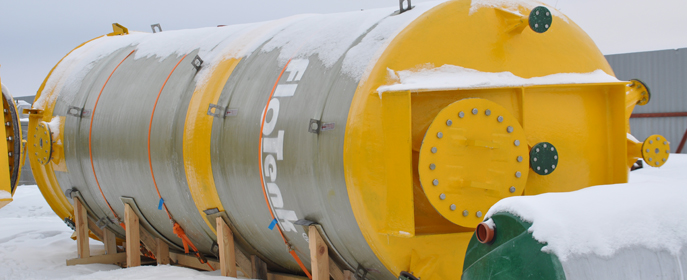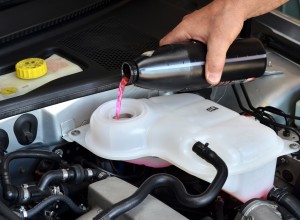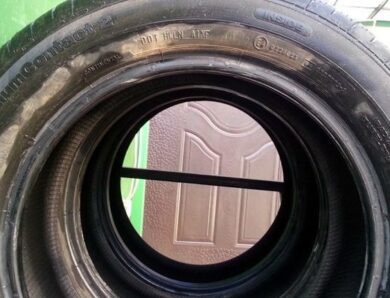
Shelf life of diesel fuel
The question of the expiration date of diesel fuel becomes relevant then, when its long-term storage is planned. In everyday use, diesel fuel is usually consumed by the engine of a car or other machinery from a few days to a few weeks after purchase., and a batch of diesel fuel is sold at the gas station in a maximum of one month. During such terms, no significant changes occur with the fuel.
We also recommend reading the article about the device and principles of operation of diesel fuel filters. In this article you will learn about it, how to gradually clean diesel fuel before supplying fuel to the pump and diesel injectors.
If you plan to store diesel fuel longer, then it should be taken into account, that diesel fuel has certain shelf life. Provided, what the outside air temperature will be 20 degrees Celsius, you can store diesel fuel 12 and more months. Raising the temperature to 30 degrees and above limits the shelf life of diesel fuel from 6 months before 1 year.
Which affects the shelf life of diesel fuel

In the process of long-term storage at a temperature of about 25-25 degrees Celsius in diesel fuel there is a suspension, which is formed by solid particles. The result is turbidity of diesel fuel. The appearance of such formations is due to this, that certain components in the composition of diesel fuel enter into a chemical reaction with oxygen, contained in the outside air.
The resulting suspension leads to rapid blockage of engine filters after refueling with such fuel. Obviously, that it is impossible to operate the internal combustion engine on such diesel fuel. Also a certain amount of solid particles, which pass through the filter elements, gets into the cylinders of the diesel engine and burns. Excessive soot is formed as a result of combustion, which leads to coking of the diesel engine and significantly increases the toxicity of exhaust gases.
Diesel fuel is prone to this, to oxidize as a result of long storage. The contact of fuel with zinc or copper has a negative effect on diesel fuel. These metals provoke the beginning of chemical reactions with the components of diesel fuel, resulting in various compounds. Such compounds adversely affect the performance of diesel fuel.
The presence of water in diesel fuel leads to the active growth of bacteria and fungi, which during prolonged storage in the fuel accumulates dust, which eventually turns into dirt. Also diesel fuel spoils when accounting for storage at high temperatures.
Another factor, which affects the preservation of diesel fuel, the presence of various additives in the composition of diesel fuel to improve its properties. The breakdown of certain groups of additives begins after a short period of time.
How to properly store diesel fuel
The shelf life of fuel can be significantly extended by maximizing the neutralization of factors and influences, which adversely affect diesel fuel and its performance properties. Diesel fuel must be stored in specially designed containers for storing diesel fuel. These containers must be kept absolutely clean.
It is necessary to carry out preventive cleaning of tanks for storage of diesel fuel at least once a year 8-10 years. If you need to store diesel fuel for winter use, then winter diesel (DTZ) or arctic diesel fuel (DTA) it is better to buy not in the off-season, and after the onset of a persistent deficit.
We also recommend reading the article on the classification of diesel fuel. In this article you will be able to learn about the types of DT, designed for different operating conditions.
pay attention, that additives in diesel for winter, which increase the fluidity and pour point, at the same time reduce the shelf life of diesel fuel of this type. For this reason, winter diesel is not recommended for long-term storage. Diesel fuel should not come into contact with such metals during storage: zinc, brass, copper. To reduce the risks, you can add a special additive diesel fuel. This metal deactivator slows down the process of chemical reactions.
The organization of the diesel fuel filtration system with the help of a recirculation filter will help to prolong the shelf life of diesel fuel. This solution allows you to get rid of impurities, which are formed during storage.
Additional additives
In addition to the deactivator of metals, which are designed to inhibit chemical reactions from contact of diesel fuel with copper, zinc, etc., there are other groups of additives. Such additives allow you to effectively extend the shelf life of diesel fuel. These groups include fungicides (swamps), which kill fungi, bacteria and even algae, which can actively grow in diesel fuel during long-term storage.
Biocidal additives are poisons, inhibiting the activity of living organisms without stopping the oxidative processes of diesel fuel. The downside is that, that in fuel, which is stored without filtering, suspensions still appear.
This precipitate formed by dead microorganisms. There are also separate groups of additives to prevent the oxidation of diesel fuel. Such additives are able to extend the shelf life and reduce the intensity of the formation of foreign suspensions.




